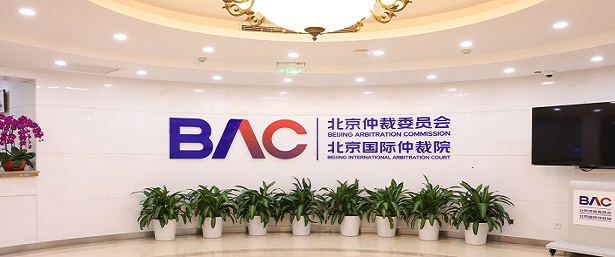
发布时间: Wed Jan 11 10:03:08 CST 2023 供稿人:陈福勇
仲裁业的发展,需要仲裁从业者积极有为,也需要立法、司法、行政各部门形成合力,这两方因素又会相互影响、彼此促进。从实践观察看,已有相当数量的国际商事争议选择中国仲裁机构仲裁并且主要以中国作为仲裁地,仲裁案件来源的国际化有所提升。
近年来,中国仲裁与国际良好实践进一步对接,赋予仲裁庭自裁管辖权以及作出临时措施的权力,从机构规则逐步上升为立法考量,力图解决中国仲裁实践一直存在的问题,法院系统积极采取支持仲裁的裁判倾向,世界银行的新营商环境评分亦加重了对仲裁指标的考察。各方正在合力促进中国商业环境与法律环境向仲裁友好的方向发展。
与此同时,包括北仲在内的中国多家仲裁机构也在锐意改革,以更符合市场需求、更尊重商事仲裁客观发展规律为方向,更新仲裁规则,培养仲裁从业队伍,提升仲裁服务水准。其中,有不少国际化探索与新方案可以关注。
仲裁费用改革。北仲2019年修改仲裁规则,在全国率先将仲裁员报酬与机构管理费明确区分开来,并规定在当事人约定的情况下,仲裁员报酬可以按照小时费率计算,进一步与国际仲裁费用机制接轨。《关于采用小时费率计收仲裁员报酬的操作指引》等配套机制也随之公布,以此鼓励当事人及仲裁员采用按小时费率计收仲裁员报酬,并已积累丰富的实践经验。适用小时费率的案件中,最高的案件为当事人节省了一半以上的仲裁费用。
推进主导权移交试点。程序管理方面,北仲在中国大陆率先开展程序主导权移交试点工作,积极推广仲裁员主导推进仲裁程序的模式,逐步改变机构承担更多程序组织工作的传统模式,以提升仲裁员的职业化、专业化、国际化水平。
仲裁庭可决定网上开庭。为积极回应新冠肺炎疫情下国际仲裁领域的实践关切,缓解对开庭环节的冲击,北仲2020年即制定关于网上开庭的试行指引,2022年修订仲裁规则,规定仲裁庭有权根据案件具体情况决定网上开庭。网上开庭的案件数量同比大幅增长,得以积累了大量的线上仲裁经验,并继续保持仲裁的效率优势。
增加当事人选任首席仲裁员的方式。北仲2022年修订的仲裁规则,在“名单制”“推荐制”外,增加首席仲裁员可由两位边裁共同选定的方式,实践中也正在扩大适用范围。当事人对己方选定的仲裁员都较为信赖,由边裁选定首席仲裁员可以视为当事人选定仲裁员权利的一种延伸。
投资仲裁的中国方案。北仲于2019年发布《投资仲裁规则》,并于2021年发布《国际投资争端仲裁员名册》《国际投资争端仲裁员行为守则》,在国际社会对于投资仲裁修改呼声不断高涨的时期,提供了中国方案。
这些探索与革新,一方面减少了国际商业主体适应规则的成本,另一方面也积极为国际社会贡献了中国智慧。中国仲裁机构正在抓住国家对外经贸发展的契机,寻找一条能够充分吸引国际主体、提升服务能力的改革路径。
实践不断融合,当中国仲裁国际化与国际仲裁中国化在未来进一步实现,将很难区分彼此。在逐步交汇的趋势中,既能顺势而为又能适时引领,是中国仲裁机构的持续课题。
Going with the global flow: arbitration developments and practice
Development of the arbitration industry requires active participation of arbitration practitioners, as well as the combined efforts of the legislative, judicial and administrative branches. These two factors in turn influence and promote each other. From a practical perspective, a significant number of international commercial disputes have been submitted to Chinese arbitration institutions, with China as the main seat of arbitration, and the proportion of international cases has increased.
In recent years, Chinese arbitration has further dovetailed with good international practice. Institutional rules have gradually been elevated to legislative consideration, with the granting of discretionary jurisdiction and power to take interim measures to arbitral tribunals to address longstanding problems in China’s arbitration practice. Courts are also willing to adopt a pro-arbitration and less judicially intrusive approach.
The World Bank’s new “Business Enabling Environment” (formerly “Doing Business”) score has also increased its examination of arbitration indicators. All parties are working together to promote an arbitration-friendly business and legal environment in China.
Meanwhile, a number of Chinese arbitration institutions, including the Beijing Arbitration Commission, have been reforming their arbitration rules, training their arbitration teams and improving their service standards in a direction more in line with the market, and respecting the development of commercial arbitration. Among them, many international explorations and new solutions deserve attention.
Arbitration cost reform. The Beijing Arbitration Commission amended its arbitration rules in 2019, becoming the first in China to clearly distinguish arbitrator compensation from institutional management fees, and providing that arbitrator compensation may be calculated at an hourly rate if agreed by the parties, further aligning it with the international arbitration cost mechanism.
Supporting rules, such as the Operational Guidelines on the Use of Hourly Rates for Arbitrator Compensation, have been published to encourage parties and arbitrators to use hourly rates for arbitrator compensation, and a wealth of practical experience has been accumulated. Among cases using hourly rates, up to half of the arbitration cost was saved for the parties.
Promoting pilot transfer of procedural leadership. In terms of procedural management, the Beijing Arbitration Commission has taken the lead Mainland of China to launch a pilot project on the transfer of procedural leadership, actively promote the model of arbitrator-led arbitration proceedings, and gradually shift away from the traditional model where institutions take on more procedural and organisational duties in order to enhance the professionalism, specialisation and internationalisation of arbitrators.
Arbitral tribunal may hold hearings online. As an active response to practical concerns in the field of international arbitration during the pandemic, and to mitigate its impact on hearings, the Beijing Arbitration Commission formulated pilot guidelines on online hearings in 2020, and amended arbitration rules in 2022, empowering the arbitral tribunal to decide whether to hold hearings online, based on specific circumstances of the case.
The number of cases heard online has increased significantly year-on-year, allowing for the accumulation of valuable experience in online arbitration while maintaining its advantage of arbitration efficiency.
More ways to elect the presiding arbitrator. In addition to the “list system” and “recommendation system”, the 2022 amendments to the Beijing Arbitration Commission’s arbitration rules added new methods for appointing the presiding arbitrator, and provided that the presiding arbitrator might be chosen jointly by two other arbitrators, the applicability of which is being expanded in practice. The parties have more trust in the arbitrators they choose, and selection of the presiding arbitrator by the two chosen by the parties can be regarded as an extension of the parties’ right to choose arbitrators.
Chinese solution to investment arbitration. The Beijing Arbitration Commission issued the Investment Arbitration Rules in 2019, and the Roster of Arbitrators for International Investment Dispute and Code of Conduct of Arbitrators for International Investment Dispute in 2021, providing a Chinese solution at a time when the international community is calling for changes to investment arbitration.
These explorations and innovations have, on one hand, reduced the cost of adapting to the rules for international business entities and, on the other hand, actively contributed Chinese wisdom to the international community. Chinese arbitration institutions are seizing the opportunity of the country’s foreign trade and economic development to find a reform path that can fully attract international entities and enhance their service capacity.
As the paths of practice continue to converge, it will be increasingly difficult to distinguish between the internationalisation of Chinese arbitration and the Chinese application of international arbitration rules. How to both follow the trend and take the lead when called upon is a puzzle that awaits Chinese arbitration institutions to solve together.
作者简介
About the Author
陈福勇,北京仲裁委员会/北京国际仲裁中心副秘书长
Dr. Chen Fuyong, Deputy Secretary General of Beijing Arbitration Commission / Beijing International Arbitration Center
本文刊载于《商法》2022年10月刊。如欲阅读电子版,欢迎浏览《商法》官网。
This essay was first published in China Business Law Journal (October 2022 Issue). You are welcome to visit the website of China Business Law Journal to get the E-reader edition of it.
